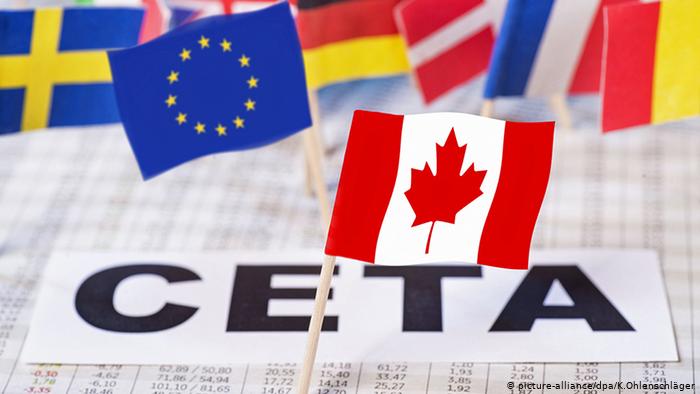We are told that everyone wins, and that jobs and cheaper goods will follow.
In reality it’s a deal for Multinational corporations and big businesses.
Bad for the Environment and Climate.
It gives Corporations the right to sue Government if they make any policy that might interfere with their business plans or projected future profits.
So if we wanted to take waste collection back into public ownership, or if we wanted to set up a state company to plan future renewable energy projects we could be sued and taken to a special Investor Court.
If we wanted to improve environmental regulation or ban fracked gas or other fossil fuels been imported into the country we could be sued. Canada is a huge producer of some of the dirtiest forms of fossil fuels known such as the Alberta tar sands. This deal could make it impossible for us to regulate the use of products from these industries
CETA means a country can privatise an industry and service but cannot reverse that policy in the future without the risk of being sued by corporations.
Big business has used such courts already to sue states trying to protect their water services or trying to ban fracking for example. Cigarette companies have sued New Zealand over restrictions on advertising while oil companies have sued Ecuador.
Bad for sustainable farming and agriculture.
The allowance for 50,000 tonnes of Canadian beef or 75,000t of pork imports will increase the pressure already on small and medium sized farms and sectors such as beef farmers. With the exit of Britain from the EU, and given that Britain is already the 4th largest recipient in the world of Canadian exports, it makes it more likely that the exports from Canada will find their way into Ireland where they will increase the pressure on struggling small farmers.
Bad for worker’s rights.
While the treaty gives strong and explicit rights to corporations it does nothing for workers rights. It fails to introduce any binding or enforceable rules that would protect and improve labour standards in the EU and Canada. Canada and several EU states have still not ratified some of the International
Labour Organisation’s core labour standards. Moreover, such treaties will increase the pressure of competition to force down wages and conditions as firms bid against each other across the Atlantic. This applies across all industries but will be particularly acute in services and IT sectors where workers are already vulnerable to precarious conditions and non-unionised workplaces
Bad for world health and the fight against pandemics.
CETA strengthens the position of patent holders relative to others in its clauses under intellectual property rights. Because intellectual property is covered by the investor–state dispute mechanism in CETA, patent holders may be able to sue governments for future regulations. As the Covid vaccine shows we need to fight against the use of intellectual property rights to ensure all nations and people across the world get access to the medicines they need.
CETA comes at the worst time in the fight against Climate change. It entrenches the power of big business and will make it harder to take the radical measures needed to ensure we switch from fossil fuels to sustainable renewable energy and achieve this in a just transition. CETA will make a new Green Deal for society impossible to deliver











